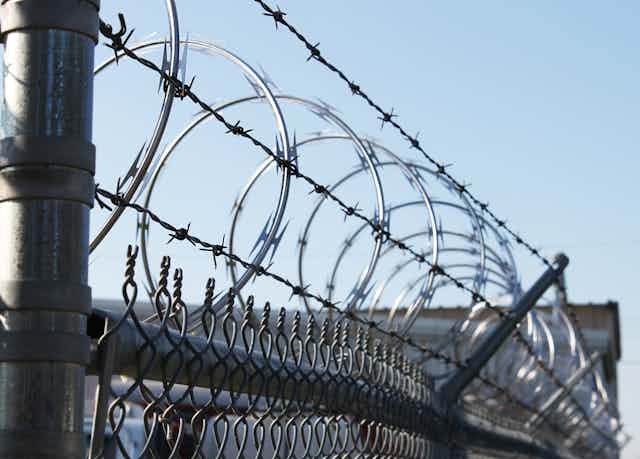Locking up people is easy. It is the first refuge of intellectually bankrupt politicians clamouring for votes by “getting tough” on crime. A good general will read history before going to war, so a good politician trying to improve the criminal justice system would do well to learn lessons from abroad.
Victoria’s politicians have clearly embarked upon an all-too-familiar path. Prisons become full, then overcrowded. Police cells also become full, followed inevitably by prisoners sleeping in court cells and driven around in secure vans, waiting for prison spaces to magically appear.
For prisons, big is not beautiful and private is not best. Short-term savings will be wiped out if inmates come out worse than when they went in. Prisons are a long-term investment - not a short-term political fix.
Victoria may not have followed the British example of passing more and more laws with ever-longer sentences, but it has introduced policy reforms with custody as the default option, coupled with the abolition of suspended sentences.
The evidence internationally is that political rhetoric alone will do the job. It will persuade courts to pass custodial rather than community sentences and fines, as well as sentencing at the top end of any guidelines. Judges become paranoid that they are out of step with public opinion, fearing national outrage if they fall foul of the tabloid media’s interpretation of what they should have done to an offender.
Following mass incarceration comes the bright idea of not letting anyone out. Victoria’s Adult Parole Board revealed parole denials had gone up 43.6% with parole cancellations up 41.1%. This is just amateur risk aversion.
The British example
The UK has only just got rid of the infamous Indeterminate Sentence for Public Protection: effectively a life sentence, which means people can be locked up forever. By the time the UK realised its insanity - let alone its cost - over 13,000 people on indeterminate sentences of various kinds were in a system incapable of dealing with the consequences.
With costs of incarceration rising and the national economy in crisis, the UK has looked to economies of scale to solve the problem. If prisoners won’t be let out, then we are told we must house them more cheaply. A 2,000 bed, so-called “Titan Prison” is planned for Wales - not because the Welsh are any more criminal than other Brits, but because the land is cheap and the local economy is so desperate for jobs it will take employment at any price.
Her Majesty’s Prison (HMP) Oakwood in the English Midlands is the UK’s newest and largest jail, opened a year and a half ago. It houses 1600 for now but will rise to 2,000 eventually. Run by private sector company G4S, it has had an inauspicious beginning with a highly critical inspection report published recently. Prisoners told inspectors that it was easier to get drugs than soap.
While locking people up is easy, it is getting them out - such that they don’t come back - which is the difficult bit, and this is where most jurisdictions are failing. We either lock everyone up forever and suffer the consequences, or take account of the fact that the vast majority should get out eventually. Putting off the inevitable is political cowardice reminiscent of too many criminal justice systems across the world.

The American example
Even the nation in the world most obsessed with incarceration is beginning to realise the error of its ways. In the US, the statistics are bewildering, with nearly two and a half million people locked up. In 2011, almost seven million adults were in prison, on probation, or on parole. There exists a large over-representation in those numbers of poor, ethnic minorities.
The US really did get “tough on crime”, particularly with mandatory minimums and long sentences without parole. Private sector consortia were keen to help out by providing penal warehouses as the prison population exploded. A lot of people made - and are still making - a lot of money from America’s high levels of incarceration.
However, some hardline Republican Congressmen began to question the logic of individual states spending more on prisons than on education. They may have been less worried about inequality, humanity and the creation of an unemployable and disenfranchised underclass in those that did get out - but their attitudes have begun to change.
Many see drug treatment as a more effective response than jail. The American states of Colorado and Washington went even further by voting to legalise, regulate and tax cannabis. Other states are questioning discriminatory mandatory minimum sentences.
Yet the Victorian government remains unrepentant, reassuring the wider public that incarceration “is about community safety” and “exactly what the community wants”. It is always dangerous when politicians tell communities what they want, given they are always selective as to who - if anyone - they ask.

